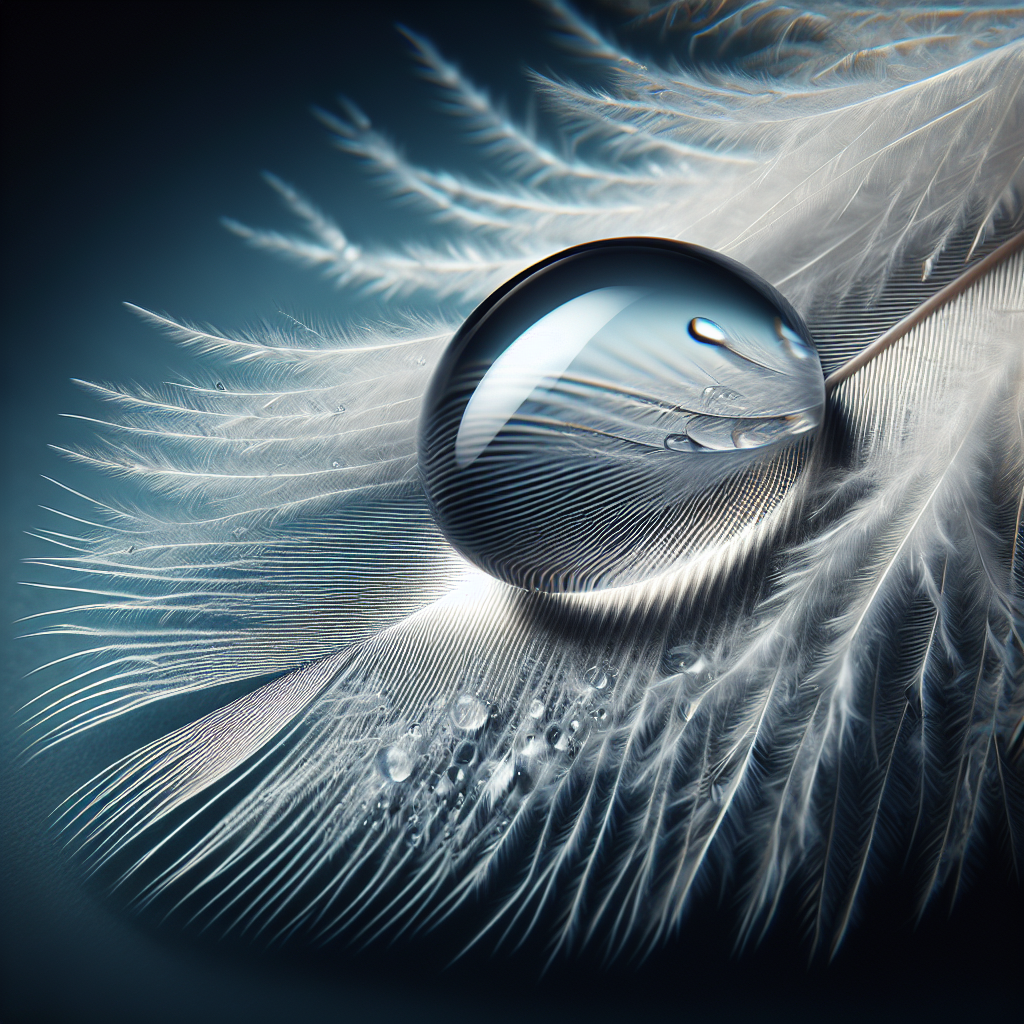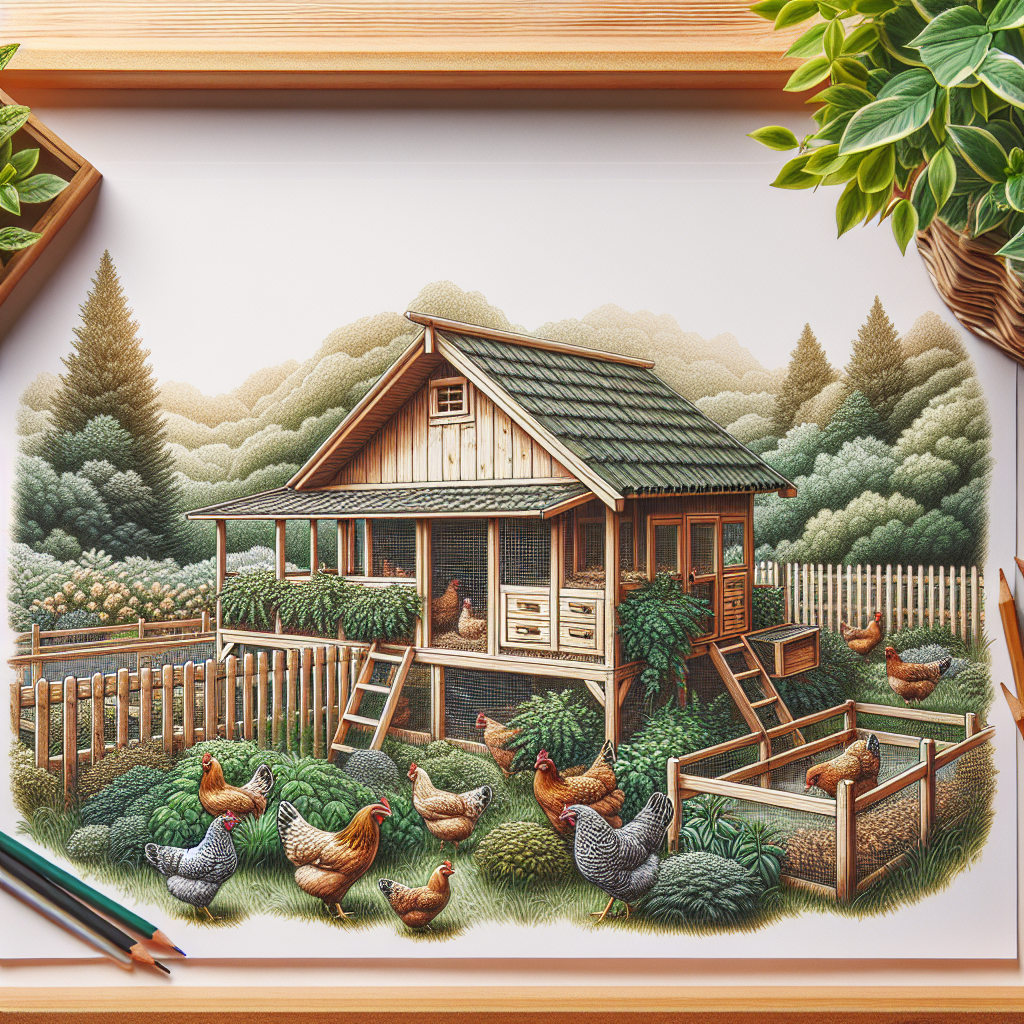In the world of chicken care, clean and fresh water is not just a basic necessity, but a key player in the preventive care of these feathered friends. From maintaining their overall health to ensuring optimal growth and productivity, the quality of water provided to chickens can make a significant difference. By understanding the crucial role that clean and fresh water plays in their well-being, you can take proactive steps to provide the best care for your flock, promoting their overall wellness and vitality.
Importance of Clean and Fresh Water for Chickens
Water as a Vital Nutrient for Chickens
When it comes to caring for chickens, ensuring they have access to clean and fresh water is of utmost importance. Water is not only crucial for hydration, but it also serves as a vital nutrient for these feathered friends. Just like humans and other animals, chickens rely on water to maintain their overall health and well-being.
Water plays a crucial role in various physiological processes within chickens’ bodies. It aids in digestion, nutrient absorption, temperature regulation, egg development, feather maintenance, and overall disease prevention. Without access to clean and fresh water, chickens can suffer from dehydration, which can have detrimental effects on their health.
Water Quality and Health of Chickens
The quality of water provided to chickens directly impacts their health. Contaminated or dirty water can introduce pathogens and foreign particles into their system, leading to the development of waterborne diseases. These diseases can significantly affect the overall well-being of chickens and even lead to mortality in severe cases.
It is vital to ensure that the water given to chickens is clean, free from contaminants, and regularly replenished. Regularly cleaning and disinfecting water containers, using proper filtration systems, and avoiding potential sources of contamination such as stagnant water or dirty bedding are essential steps in maintaining the quality of water for chickens.
Preventing Dehydration in Chickens
Effects of Dehydration on Chickens
Dehydration is a condition that occurs when chickens don’t have enough water to meet their body’s needs. It can have severe consequences on their health and well-being. When chickens become dehydrated, they may experience reduced egg production, decreased feed conversion efficiency, weight loss, decreased mobility, and even death in severe cases.
Dehydration impairs the normal functioning of various organs and bodily functions. It affects digestion, nutrient absorption, body temperature regulation, and overall metabolic processes. To prevent dehydration, it is crucial to provide chickens with an adequate and constant supply of clean and fresh water.
Water Requirements for Chickens
The water requirements for chickens vary depending on factors such as age, size, environmental conditions, and activity levels. On average, a laying hen requires around 250-300ml of water per day. However, during hot weather or when consuming a higher proportion of dry feed, their water intake may increase significantly.
Ensuring that chickens have unlimited access to water throughout the day is essential. The water should be easily accessible, and multiple water sources should be provided to prevent overcrowding and competition. In addition, during extreme temperatures, it is beneficial to add ice cubes or provide shaded areas to help regulate chickens’ body temperature and encourage water consumption.
Promoting Hygiene and Preventing Diseases
Waterborne Diseases in Chickens
Waterborne diseases pose a significant threat to the health and well-being of chickens. These diseases are caused by various pathogens such as bacteria, viruses, and parasites that contaminate the water source. Common waterborne diseases in chickens include avian cholera, salmonellosis, E. coli infections, and coccidiosis.
Contaminated water can be a breeding ground for these pathogens, leading to the rapid spread of diseases within a flock. Regularly testing the water quality, maintaining cleanliness of water containers, and providing clean and fresh water are essential steps in preventing waterborne diseases in chickens.
The Role of Clean Water in Disease Prevention
Clean water plays a crucial role in preventing diseases in chickens. By providing clean and fresh water, the risk of pathogens entering the chickens’ system and causing infections is significantly reduced. Clean water helps maintain a healthy gut environment, strengthens the immune system, and improves the overall health of chickens.
Regularly cleaning and disinfecting water containers, removing any debris or fecal matter, and ensuring a constant flow of clean water can greatly contribute to disease prevention. Additionally, providing access to clean water stimulates chickens’ natural drinking behaviors, encouraging them to stay hydrated and maintain their health.
Maintaining Optimal Nutrient Intake
Improving Digestion and Nutrient Absorption
Water plays a vital role in improving digestion and nutrient absorption in chickens. It aids in breaking down feed particles and facilitating the movement of nutrients through their digestive system. Without sufficient water, chickens may struggle to properly digest their food, leading to nutrient deficiencies and poor growth.
By ensuring chickens have access to clean and fresh water, their digestive system functions optimally, allowing for efficient breakdown and absorption of nutrients. This, in turn, promotes healthy growth and development, enhances immune function, and supports overall well-being.
Water Consumption and Feed Conversion Efficiency
Water consumption directly influences feed conversion efficiency in chickens. Feed conversion efficiency is a measure of how efficiently chickens convert feed into body weight gain. When chickens have access to adequate water, their feed digestion improves, allowing them to extract the maximum amount of nutrients from the feed they consume.
Insufficient water intake can lead to decreased feed conversion efficiency, resulting in poor body weight gain and reduced production potential. To ensure optimal growth and production, it is crucial to provide chickens with clean and fresh water to support their feed conversion efficiency.
Supporting Overall Health and Well-being
Water for Temperature Regulation in Chickens
Water plays a vital role in temperature regulation for chickens, particularly during hot weather conditions. Chickens do not have sweat glands like humans, so they rely on other mechanisms to cool down, such as panting and dissipating heat through their comb and wattles.
Providing chickens with clean and fresh water allows them to stay hydrated, which aids in maintaining their body temperature. Water helps chickens regulate their internal temperature by aiding in the cooling process through panting and promoting better blood circulation.
Behavioral Benefits of Access to Clean and Fresh Water
Access to clean and fresh water also has significant behavioral benefits for chickens. It fulfills their natural instincts and provides them with an outlet for their innate behaviors. Chickens enjoy pecking at the water, splashing it, and engaging in social interactions around water sources.
Having access to clean water allows chickens to engage in these natural behaviors, reducing stress and promoting overall well-being. It also encourages more physical activity, which is essential for maintaining healthy muscle function and preventing problems such as obesity or muscle atrophy.
Ensuring Proper Egg Production
Water and Egg Development
Water plays a crucial role in the development and production of eggs in chickens. To produce eggs of good quality, chickens need to maintain their hydration levels. Adequate water intake supports the formation of eggs, ensuring they have a healthy shell, proper yolk formation, and sufficient albumen (egg white).
During the egg-laying process, chickens require extra water to replace the fluids lost in egg production. Providing a constant supply of clean water ensures that chickens can meet their water requirements, leading to optimal egg development and production.
Influencing Eggshell Quality with Adequate Water Supply
Water availability also influences eggshell quality in chickens. The formation of eggshells requires calcium, which is obtained through their feed and water. Insufficient water intake can lead to decreased calcium absorption and result in weak, thin, or irregularly shaped eggshells.
By providing clean and fresh water, chicken owners can ensure that their flock has sufficient access to the water needed for the formation of strong and healthy eggshells. This, in turn, contributes to improved egg quality and reduces the chances of egg breakage or deformities.
Improving Feather Health and Appearance
Water for Feather Maintenance
Water is essential for maintaining the health and appearance of chickens’ feathers. Feathers play a vital role in protecting chickens against environmental elements, providing insulation, and aiding in flight. Without proper feather maintenance, chickens may experience a range of issues, including feather loss, damage, and impaired flight.
Feather maintenance requires regular preening, which involves the application of natural oils that keep feathers flexible, waterproof, and well-groomed. Water helps chickens clean their feathers, remove dirt and debris, and distribute natural oils effectively, ensuring their feathers remain healthy and in optimal condition.
The Role of Hydration in Feather Regrowth
Hydration is crucial for feather regrowth in chickens. If a chicken experiences feather loss due to molting or injury, proper hydration is necessary for the regrowth process. Feathers are primarily composed of keratin, a protein that requires adequate moisture to develop strong and healthy structures.
By providing clean and fresh water, chicken owners can support the regrowth of feathers and ensure a healthy and robust plumage. Hydrated feathers are less prone to damage, maintain their structure better, and contribute to overall feather health and appearance in chickens.
Preventing Respiratory Issues
Reducing Dust and Ammonia Levels
Water plays a role in preventing respiratory issues in chickens by reducing dust and ammonia levels in their environment. Poor air quality can lead to respiratory problems, which can significantly impact their health and productivity. Dust particles and ammonia can irritate chickens’ airways and cause respiratory distress.
By regularly cleaning and moistening the environment, particularly the chicken coop, dust levels can be minimized. Water can be used to suppress dust particles and control ammonia levels, creating a healthier living space for chickens. This helps prevent respiratory issues and maintains optimal respiratory health.
Moisture for Respiratory Health
Maintaining proper moisture levels in the air is essential for chickens’ respiratory health. Dry air can cause the mucus membranes in their respiratory system to dry out, making them more susceptible to respiratory infections. On the other hand, excessively humid conditions can create an environment favorable for the growth of pathogens.
Providing clean and fresh water can help maintain beneficial humidity levels in the chicken coop. Proper ventilation combined with adequate moisture in the air promotes a healthier respiratory system and reduces the risk of respiratory problems in chickens.
Enhancing Exercise and Physical Activity
Water and Muscle Function in Chickens
Water is essential for optimal muscle function in chickens. Muscles play a crucial role in their mobility, including walking, foraging, and engaging in various physical activities. Dehydration can lead to muscle cramps, weakness, and reduced mobility, hindering chickens’ ability to exercise and perform daily tasks.
By ensuring chickens have access to clean and fresh water, their muscles stay hydrated and maintain their functionality. This encourages physical activity, supports overall muscle health, and contributes to chickens’ well-being.
Hydration for Optimal Movement and Foraging
Hydration is vital for enabling chickens to engage in optimal movement and foraging behavior. Well-hydrated muscles allow chickens to move more freely, explore their environment, and engage in natural foraging activities. Proper hydration also ensures that chickens have the energy necessary for these physical endeavors.
By providing clean and fresh water, chicken owners can promote hydration and encourage chickens to engage in exercise and physical activity. This ultimately leads to improved muscle strength, agility, and overall well-being.
Minimizing Stress and Improving Behavior
Water as a Stress-Reliever for Chickens
Water serves as a stress-reliever for chickens, helping to minimize stress levels and improve their overall behavior. Chickens, like other animals, can experience stress due to various factors such as changes in their environment, social interactions, predators, or handling by humans.
Providing access to clean and fresh water can provide chickens with a sense of security and comfort. Water splashing and pecking behaviors act as a natural outlet for stress, allowing chickens to release tension and divert their attention from potential stressors. This promotes a calmer and more relaxed demeanor among chickens, leading to improved behavior and well-being.
Promoting Social Interaction and Pecking Order
Water sources can serve as areas of social interaction and pecking order establishment among chickens. Chickens are social animals that establish hierarchies within their flock. Access to clean water encourages interaction and allows chickens to establish and maintain their social structure.
By providing multiple water sources, chicken owners can prevent overcrowding and allow chickens to drink without competition. This promotes a peaceful and harmonious social environment, reduces stress, and ensures that all chickens have equal opportunities to hydrate and exhibit their natural behaviors.
In conclusion, clean and fresh water plays a vital role in the preventive care of chickens. From their overall health and well-being to their egg production, feather health, and disease prevention, water is an essential nutrient that should never be overlooked. By providing clean and accessible water, chicken owners can ensure the longevity and optimal health of their feathery friends. So, make sure to quench those chicken’s thirst with clean, cool, and refreshing water for a happy and healthy flock!




